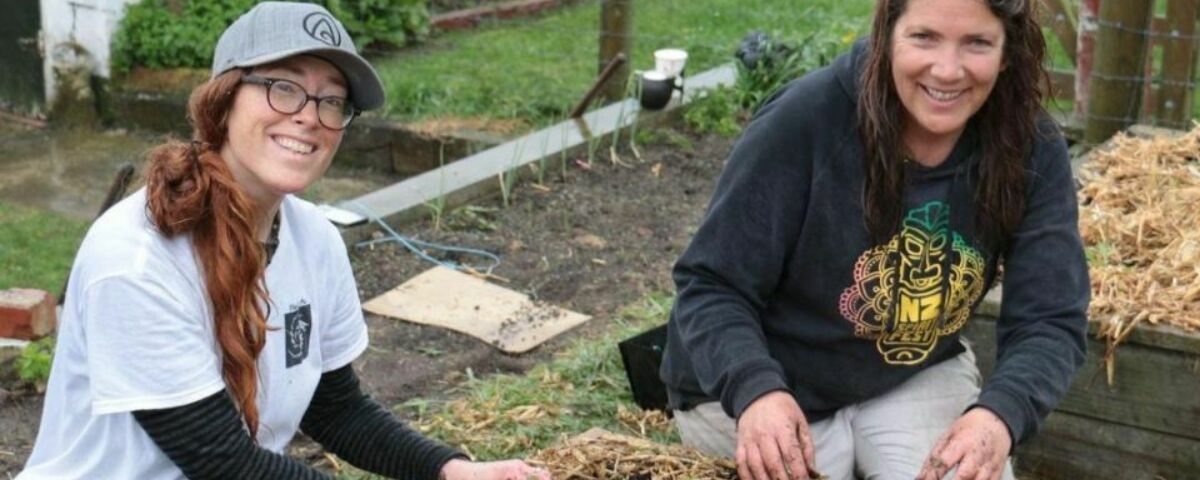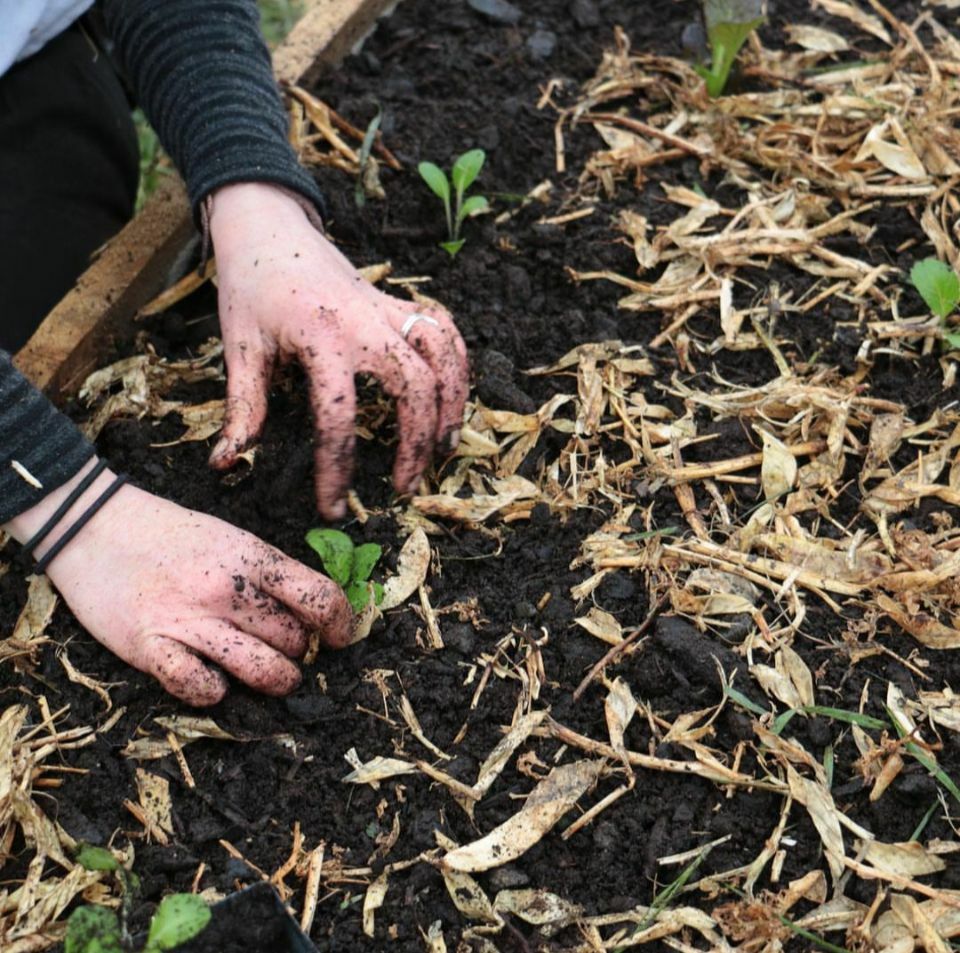




Keep this story going! Share below!
Hapori o te Ao introduces an innovative approach to help people maintain a more sustainable lifestyle and well-being by creating home-based edible gardens. By harvesting fresh produce at home, people reduce their carbon footprint associated with food transportation and don't expose themselves to unhealthy preservatives used to extend the shelf life of store-bought items. This solution directly contributes to SDG 3: Good Health and Well-being by encouraging healthier eating habits and mental as well as physical health benefits gained through spending productive time in nature, and to SDG 12: Responsible Consumption and Production by promoting localized and sustainable food sources.
During the global lockdown, the supply chain for agricultural produce was severely affected due to production disruptions, distribution challenges, and labor shortages. While people had more time to spend on their hobbies, the relative shortage of agricultural food supply ignited the desire to spend more time in their gardens and produce their own food. Inspired by the burgeoning "Gardening Boom" (The Guardian, 2020) and recognizing the business potential to offer to simplify this process for customers, Sophia and Ali united their shared passion for gardening and their deep understanding of its therapeutic benefits to establish Hapori o te Ao. Complementary backgrounds of the co-founders, where Sophia's experience as a Community Garden manager and her expertise in sustainable agriculture are complemented by Ali's teaching background and practical farming knowledge, as well as their shared desire to empower their community in Ōamaru by fostering a deeper connection to the land and promoting healthier, sustainable lifestyles, lay the strong foundation for Hapori o te Ao's innovative approach to edible gardening.
Established during the first Covid-19 wave, Hapori o te Ao's innovation revolves around locating raised garden beds in households, providing a simple yet impactful solution to promote sustainable home-based edible gardening. The process begins with the free quote process, where the team consults with the household for the measurements and list of plants of their choice. Then based on the desired plants and measurements, Hapori o te Ao team constructs raised garden beds using untreated wood lined with cardboard to prevent weed growth. This foundation is then layered with a mixture of compost and soil, creating an optimal environment for plant growth. Depending on the season and the plant choices, they either transfer the planted plants from Community Garden or outsource the seedlings. "When our customers get home, basically their garden has been planted out with vegetables of their choice," Ali elaborates.
By offering ready-to-use raised garden beds filled with nutrient-rich compost and plants of the customer's choice, Hapori o te Ao addresses multiple SDGs. The business primarily contributes to SDG 2: Zero Hunger and SDG 13: Climate Action by empowering households to grow their own fresh produce, enhancing food security, decreasing reliance on mainstream supermarkets, and directly reducing the carbon footprint associated with transporting food across New Zealand and beyond, mitigating GHG emissions.
Also, this business idea aims to solve two other SDGs: 3 and 11. The concept enhances well-being by nurturing a connection to nature through gardening, positively impacting mental and physical health and the consumption of fresh produce (SDG 3: Good Health and Well-Being). As the initiative fosters urban agriculture and localized food production, it contributes to sustainable communities through efficient land use and reduced greenhouse gas emissions (SDG 11: Sustainable Cities and Communities).

During the first lockdown, when people were concerned about the agricultural food supply in supermarkets, had limited access to store-bought produce, and had more time to spend on recreational activities, Ali and Sophia observed the increasing number of people looking to grow their own vegetables in their backyards. "I found it inspiring that straight after lockdown, so many people wanted to begin edible gardening when we started our business because there are so many ecological costs to transporting fresh food all around New Zealand and across the world." as Sophia describes. "When we first started, it was just the right momentum because people were concerned about where they were." Ali elaborates.
"So we came up with the idea of building raised garden beds for people at home, filling and planting them for them. So it's an instant vegetable garden because many people might not have the resources, like a trailer to bring home the compost or the skills to build a raised garden bed. We thought if we can make it as easy as possible, I believe, that'll open some doorways for people," Sophia shares. Their inspiration aligned with the growing importance of sustainable practices and localized food production. Sophia and Ali understood the environmental impact of long-distance food transportation and recognized urban agriculture's potential to address health and ecological concerns. Sophia explains, "In the past, growing one's own food was widespread among our grandparents, but as women joined the workforce and convenience took over, our parents' generation lost touch with edible gardening. However, we are witnessing a resurgence of this skill among our generation and the one following us." To bring back the very true nature of humans centuries ago, which was supplying households with their own produce, this innovation aims to reconnect individuals with the fundamental and empowering act of cultivating their own food, fostering self-sufficiency, and nurturing a sustainable way of life.
"It's a simple skill, and people say that not everyone can do it, but I don't believe that. If people have the necessary knowledge, it's a basic human right to bring food. And I believe people will share and embrace it more than they used to," Ali adds. Both colleagues are experienced and extremely passionate about their goals; they are dedicated not only to promoting but also to guiding people on their journey of self-production and sustainable gardening.
The overall impact of Hapori o te Ao's innovative approach to sustainable gardening has been transformative, resonating within the Ōamaru community. Since its inception, the business has set in motion a paradigm shift towards self-sufficiency and healthier living. The immediate effects of their interventions are tangible, as households witness their backyards bloom into their choice of fresh produce. Ali said, "People love the process because they come home and see a fresh, ready-to-use garden. It's a pop-up - instant vegetable garden."
In the short term, households were influenced by their neighboring families and word-of-mouth who had implemented these instant edible gardens through Haporti o te Ao. "We don't use advertising; feedback from the customers we helped to have their own garden makes more people involved in the transition," Ali explains. Another short-term observation was increased interest among the children of households with edible gardens in an after-school program co-initiated by Hapori o te Ao and Waitaki Community Garden. This initiative focuses on educating children about sustainable living skills, mainly centered around gardening and environmental awareness. Based on the practically learned concepts about gardening, school-aged children help to maintain the edible garden in their backyard, spending quality time with their parents and strengthening sustainable living practices from a very early age. Over time, as these children are immersed in and derive enjoyment from sustainable living practices, a ripple effect is anticipated, leading to broader adoption of these standards among their future households in the long run. "If you grow up with that sort of skill set, it just becomes part of normal life, not something you have to try to figure out as an adult," Sophia describes.
Despite its relatively small population, Hapori o te Ao has provided instant edible gardens to more than 50 households in Ōamaru and more than 100 families have gone through the gardening program. The innovation in the case of Hapori o te Ao is the business idea itself, making the establishment of edible gardens easier for people to start living sustainably on their own. As the root idea of the business itself is connected to the human desire to be reconnected to nature and feel the pride of growing own vegetables, the business didn't necessarily need to advertise or increase visibility through campaigns. People were influenced by the act of others based on the obvious deliciousness - instant vegetables and plants in the back or front yard. "We built a garden bed for a single mother and her high school-age son. They really enjoyed the idea of consuming fresh food from their front yard, so they requested us for a second time to build an additional garden bed. Based on their experience, they've had lots of their neighbors, family, and friends asking about it because it's sort of something that everybody walks past or on their way into the front door, they see their vegetable garden," Sophia remembers. This organic growth in recognition has led to increased trust and credibility among customers.
"I think home edible gardening is definitely achievable for most New Zealanders who have a quarter-acre section," Sophia mentions. However, one of the key barriers to widespread gardening is often the absence of initial equipment and essential knowledge. At the core of the business lies the aim to simplify the process of sustainable living by enabling individuals, especially those lacking expertise and resources, to establish and maintain their own edible gardens effortlessly. This approach resonates with people who might otherwise be deterred, therefore effectively encouraging their participation in cultivating their own gardens.
Hapori o te Ao's business idea's benefit on society and the environment is intertwined. By empowering individuals and fostering a sense of agency, the business contributes to the overall well-being of both community and the environment. This dual impact stems from the understanding that a healthier, more engaged society is inherently linked to a healthier environment.
The business drives a societal shift towards self-sufficiency and sustainable practices by focusing on producing the plants they desire themselves. By playing a role as a catalyst for individuals aspiring to cultivate a garden yet constrained by a lack of equipment and expertise, or motivation, this innovative business concept effectively boosts the prevalence of household gardens. This creates a connection between individuals and the land they inhabit, providing a hands-on experience that resonates with our historical roots. Engaging in gardening not only nourishes their bodies with nutritious produce but also nurtures their minds, as it provides a meditative connection with nature through physical contact.
Simultaneously, this business innovation decreases the dependency and demand from conventional food supply chains, which often involve resource-intensive transportation and packaging. By promoting local agriculture, Hapori o te Ao decreases carbon emissions and reduces the need for excessive packaging materials. This, in turn, increases the well-being of society by playing a small but powerful role in the fight against climate action.
If practicing ownership of edible garden gets widespread, it will positively impact the overall well-being of our Planet. "It's been really awesome to sort of inspire the next generation and see the young people connect with other like-minded eco-warriors." - Sophia mentioned.
Get stories of positive business innovations from around the world delivered right to your inbox.
Sophia Leon de la Barra, Director & Co-founder
Alison Stock, Co-founder

Hapori o te Ao, a Ōamaru-based social business, empowers families to live sustainably by growing their vegetables and greens. The enterprise fosters eco-consciousness by planting raised edible gardens where people can start growing food and enjoy fresh harvests from their backyard. Led by local experts Sophia and Ali, the team empowers individuals of all ages to cultivate healthier lives through edible gardening.